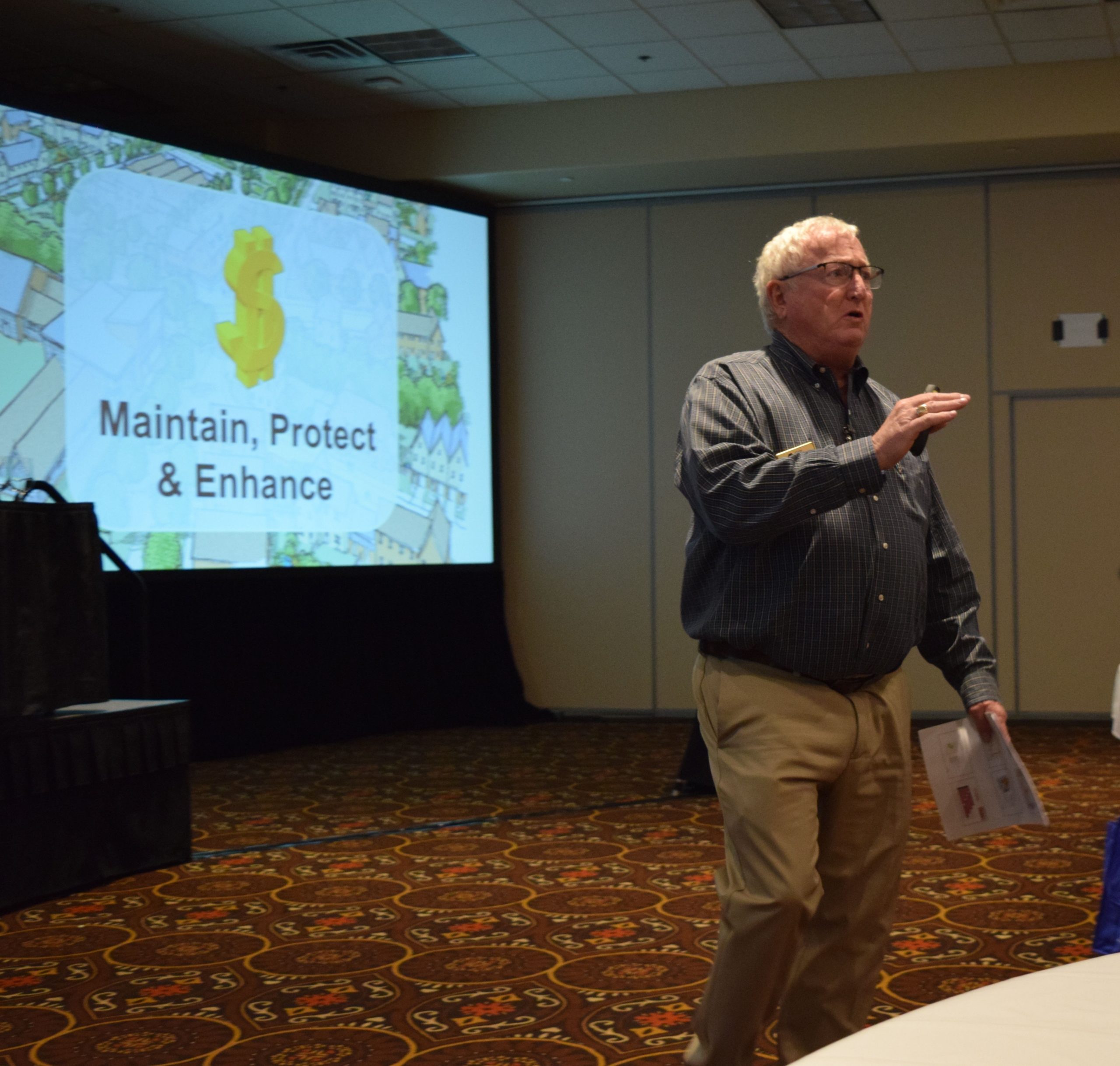
The foremost responsibility of a timeshare owners’ association’s board members is “to maintain, protect, and enhance” the value of the resort’s assets. So said Craig Huntington, president of Alliance Association Bank (AAB) in Las Vegas, NV, in a presentation at the fall 2019 TBMA meeting.
Huntington said a board should develop an investment policy to guide its decisions on behalf of the owners. “It’s not your money,” he reminded the attendees, urging the board to review the resort’s finances at least quarterly. He said the manager should keep accurate records and provide a financial report at every board meeting.
Board members, he said, should emphasize safety above all, relying solely on investments insured by the Federal Deposit Insurance Corporation (FDIC), an independent federal agency that covers’ depositors’ losses up to $250,000 in case a bank fails.
These include checking accounts, money-market accounts secured by Treasury bills (T-bill secured accounts), certificates of deposit, treasury bills, and treasury notes.
Huntington described a “CD Ladder” strategy: setting up 12-month certificates of deposit to mature and roll over at three-month intervals, providing a flow of available funds to meet a resort’s ongoing quarterly needs while earning interest at a steady rate on the remaining balances.
For larger resorts, the CDARS certificate of deposit product can provide up to $50 million in FDIC insurance coverage by distributing funds among participating banks in accounts below the FDIC limit. CDARS customers work with a single bank, with one agreement, interest rate, account statement, and 1099 tax form.
Also available is an ICS money market account – “basically a liquid CDARS account,” he said — that provides up to $50 million in FDIC coverage through multiple banks, and sweeps the interest to a checking account at regular intervals.
When a resort needs money for capital improvements or other purposes in amounts exceeding its reserves, Huntington said borrowing is preferable to a special assessment, which unfairly penalizes recent buyers, compared to having all owners pay off a loan on a pay-as-you-go basis.
“Borrow more than you really need all at once,” he advised. “Interest rates are very low right now, but they may go up dramatically in the future.”
Also, he counseled, seek out a banker familiar with timesharing. “All bankers aren’t the same,” he said. “Many don’t understand non-profit timeshares, where the lender can’t lien property and require personal guarantees.”
